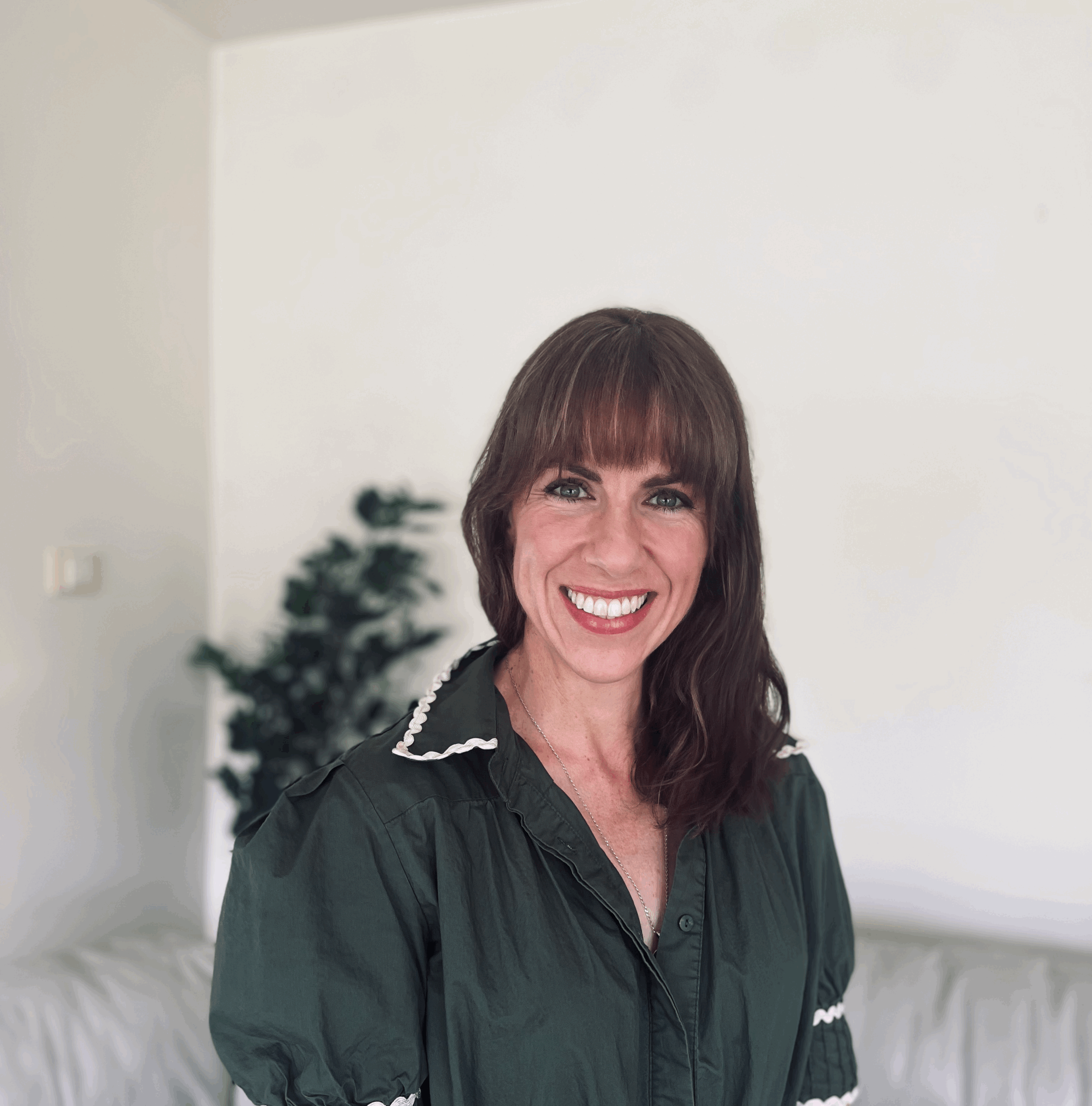
a health psychology and embodiment practice reconnecting the heart, the body and the mind
Dr Emily Tunks is the passionate founder of embody being™, a health psychology and somatic psychotherapy practice that reconnects the intuitive relationship between our physical, emotional and relational wellbeing. Emily (she/hers) offers inclusive, evidenced-based, somatic psychotherapy to support adults embody the lives they wish to live.
In-person appointments are held in Brunswick and Williamstown (Victoria, Australia), as well as secure video sessions online. Medicare and Health Fund rebates are available where applicable. For exisiting clients, online booking access and outdoor sessions can be arranged.
embody being™ acknowledges the Traditional Owners of the Boonwurrung, Woiwurrung and Country throughout Australia, and their continuing connection to land, waters and culture. Sovereignty has never been ceded.
don’t explain your philosophy, embody it
epictetus

about
Dr Emily Tunks (she/her)
Health Psychologist
MAAPi
Emily aims to support individuals understand their whole selves, body and mind, so that their health, relationships and life purpose may thrive, in spite of physical set-backs and ongoing challenges.
Emily co-majored in Psychology and Psychophysiology at Swinburne University, and after obtaining first class honours, she was awarded a full scholarship to complete a Doctorate of Psychology (Health) at Deakin University. Her doctoral qualitative research investigated Australian specialists' attitudes and practices of end-of-life care and organ donation, which was published in a high impact, international SAGE scientific journal: Journal of Health Psychology (under previous name: E. Macvean).
Emily is a member of the Australian Association of Psychologists Inc. and is endorsed in Health Psychology (AHPRA). She maintains a commitment to excellence through researching best-practice techniques and her strong understanding of health psychology, clinical psychology, attachment, physiology, somatic (body) psychotherapy, psychodynamic psychotherapy, ecotherapy and psychoneuroimmunology. Both in session and outside, Emily draws on her modern practice of Eastern contemplation traditions and is a graduate of Hakomi Somatic Psychotherapy professional training.
Emily is honoured to be a co-therapist in several local and international clinical research trials for Psychedelic-Assisted Psychotherapy (psilocybin with depression at Swinburne University and MDMA with PTSD at Monash University, collaborating with MAPS). In preparation for this humbling work, Emily continues to train extensively with several leading international PAP and trauma experts, local PAP integration and somatic psychotherapists. She deeply respects the healing potential of “non-ordinary” states of consciousness but most importantly, their safe, ethical, and practical integration.
In addition to private clinical work, Emily has over a decade of multidisciplinary team experience in world-leading pain management and chronic illness hospital units, rehabilitation units, community health settings and university lecturing.
Health Psychology
Emily offers clinical health psychology, which is a field of psychology that focuses on the overlap between biological, psychological, social and emotional aspects of health and disease, and how to better understand and treat this crucial intersection.
While an established offering in many public hospital psychology units, private health psychology services are much harder to find. This prompted Emily to establish embody Being™, now located in two inner Melbourne locations and online. With our improving awareness of neurodivergence, incidents of chronic illness are rising but so is life expectancy. To maximise our quality of life, there has never been a more important time for health psychology in Australia.
Emily discusses the life-changing significance of holistic health care, in an interview for Australian Unity here.
For more about Health Psychology here in Australia, America and England please see:
“Health psychologists use their knowledge of psychology and health to promote general well-being and understand physical illness.
They are specially trained to help people deal with the psychological and emotional aspects of health and illness as well as supporting people who are chronically ill. ”
Somatic Psychotherapy
It was the eastern principles (Hakomi: Mind-Body Holism, Organicity, Mindfulness, Unity and Non-violence) that initially drew Emily to find additional ways of supporting people in their therapy: “what I didn’t anticipate is just how deeply these five principles continue to impact me and my practice”.
Through mindful exploration, relationally-based psychodynamic process and contemporary developmental maps, somatic psychotherapy offers the ‘curious of mind’ a multitude of non-pathologising methods to better understand our individual and shared conditioning. Most importantly, it shows therapist and client how to authentically integrate these experiences back into our hearts, bodies and relationships.
Somatic psychotherapy will support us to ‘see’ the things that are always present, but we may not have been previously guided on how or where to notice them. It offers elegantly simple but strikingly powerful methods to meet others, so that the unconscious, its innate wisdom and any protective ‘resistance’ is genuinely welcomed like it’s the most insightful part in the room, because it is.
Therapy then becomes a true method of assisted self-discovery, which makes the ‘work’ of being both a client and therapist enriching, inspiring and sustaining.
Formal Qualifications
2023 Advanced Hakomi Somatic Psychotherapy Clinical Supervision Year 3
2021/22 Advanced Somatic Intelligence Trauma Training Approach Year 1 and 2
2021 MDMA Assisted Psychotherapy - Multidisciplinary Association of Psychedelic Studies (MAPS)
2020 Hakomi Somatic Psychotherapy Professional Training Year 2
2018-2019 Hakomi Somatic Psychotherapy Workshops and Professional Training Year 1
2007-2010 Doctorate of Psychology (Health)
2002 Bachelor of Science – Psychophysiology Honours (First Class)
1997-2001 Bachelor of Arts – Psychology/Psychophysiology
Associations and Memberships
Psychology Board of Australia (AHPRA)
Endorsed in Health Psychology (AoPE)
Member of the Australian Association of Psychologists Inc (AAPi)
Co-chair of the AAPi Psychedelic-Assisted Psychotherapy (PAP) Interest Group

areas of focus
If unresolved trauma can store itself in your muscles, fascia, organs, cells and the rest of your physical body, so can joy, gratitude, abundance, love and peace. Your body is also a safe space
Ryan Rose
Emily delights in working together, honouring your strength, trust, curiosity and humour in a compassionate therapeutic relationship. Drawing on her lifelong training and passion for our unique differences, Emily supports adults (min. 25 years of age+) to embody the deeper lives they long to live. Supervision or career mentoring for all health professionals can be arranged on a casual or long-term basis.
People come to see Emily when seeking understanding and support for:
chronic conditions such as CFS, POTS, diabetes, IBS, HIV, hypermobility, autoimmune diseases, long COVID
women’s sexual, reproductive and relational health - PMDD, PCOS, sex, body and relationship inclusivity and diversity
trauma, anxiety and fear, health phobias and panic
chronic pain support including CRPS, cluster headaches/migraine, TMJ, fibromyalgia, post-surgical programs
burn out, disenchantment with the health system, frustration with traditional “talk” therapy in general
depression and disconnection
existential crisis
support and integration with “non-ordinary” states of consciousness, including near death experiences (NDE)
grief and loss
“mid-life” and quarter-life crisis, life transition and adjustment issues
life-threatening illness such as cancer and other progressive diseases
highly-sensitive persons (HSP)/sensory processing sensitivity (SPS)
feeling consistently “stuck”, “heavy” or “just surviving”
other specialised adjustment conditions such as IVF and organ transplantation.
Please note: Emily does not provide legal or psychometric reports, Work Cover, VoCAT or TAC claimed services.

approach
may you feel the love that makes the pain of being human worth it
dr emily tunks
Being alongside as you navigate your unique health journey is held with the greatest reverence by Emily. She truly enjoys meeting all “parts” of our inner landscapes using a flexible combination of humanistic, neuro-affirming, attachment and evidenced-based approaches, namely:
Mindful Somatic Psychotherapy (ie. Hakomi)
Somatic Processing and Trauma Sensitive Mindfulness
Interpersonal Therapy
Eco Psychotherapy
Compassion Focused Therapy
Buddhist Psychology
Transpersonal Therapy
Parts work (ie. Hakomi and Internal Family Systems)
Liberal Feminist Psychology
Motivational Interviewing, Acceptance and Commitment or Cognitive Behavioural Therapy where clinically indicated (stabilisation)
Graded Exposure Therapy for panic and phobia

connect
ring the bells that still can ring, forget your perfect offering
there is a crack, a crack in everything, that’s how the light gets in
leonard coen - anthem
Emily offers in-person appointments in Brunswick and Williamstown (Vic, Aust.) and secure video appointments online. Medicare and health fund rebates are available where relevant. Nature-based/outdoor sessions and online booking options are also arranged for exisiting clients.
For more information or to be placed on a short waitlist, please email a brief introduction and your area of interest to: admin@embodybeing.com.au or call 03 70382343 on weekdays between 8.30am and 5.30pm AEST. Please visit embody being on Facebook for articles and links.
embody being™ is not a crisis or active addiction service. For immediate support, contact your GP and/or click through to relevant listings: https://www.mhvic.org.au/need-urgent-help. For all life-threatening emergencies call 000.


